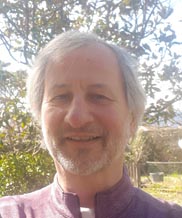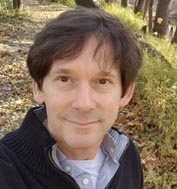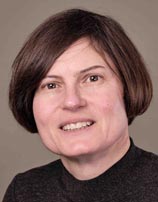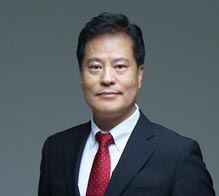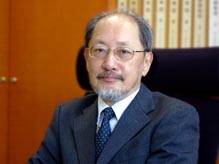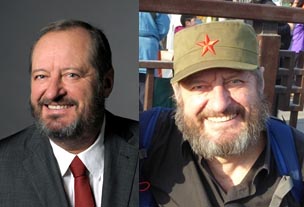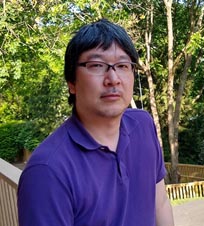 |
ISCApad #303 |
| Thursday, September 07, 2023 by Chris Wellekens |
2 ISCA News
| 2-1 | Message of Dr Odette Scharenborg, ISCA president
Dear ISCA members,
This is my first time to write to you as the new president of ISCA. Only 2 weeks ago we finished a wonderful Interspeech, our association’s flagship conference, held in Dublin, Ireland. It was amazing to see so many well-attended posters, sessions, and panel discussions and of course the mentoring and student events and social events. I hope you all learned a lot and definitely as important: I hope you made new connections and collaborations, and friendships.
I want to thank Naomi Harte, Gareth Jones, and Julie Carson-Berndsen, the three amazing General co-chairs of Interspeech 2023, the equally amazing technical program chairs Simon King, Petra Wagner, and Kate Knill, and ALL of the other people in their team who worked day and night for months, years, to give us this amazing event. My thank you definitely also includes the reviewers: we will not be able to hold Interspeech, or any workshop or conference actually, if we do not have reviewers. If you are not yet a reviewer, and fulfil the criteria of becoming one (https://www.isca-speech.org/iscaweb/index.php/conferences), please sign up via our website (https://isca-speech.org/iscareviewers/reviewer.php). A further thank you to our members of the ISCA Advisory Council who provide the ISCA board with their opinions and advice on many different topics whenever we ask for them (e.g., regarding conference bids, elections, proposed changes to the by-laws, etc), throughout the year. A final thank you to Chris Wellekens, who for so many years now, has dedicated some of his time to put together this ISCAPad.
At Interspeech we also celebrated the new ISCA Medalist for Scientific Achievement, eight new ISCA fellows, three best student paper awards, a best journal paper award and a best poster award at the Young Female Researchers in Speech Science and Technology Workshop. Congratulations to all!
On Tuesday August 22, we held our yearly General Assembly, where I officially took over the presidency from Sebastian Möller, who led our association for these past two years. I worked with Sebastian on the ISCA board for the past 6 years, and have seen how tirelessly he worked and how dedicated he was to making ISCA a better association and particularly his focus on professionalising the software supporting ISCA and Interspeech. It was an absolute pleasure to work with Sebastian. Sebastian has kindly agreed to continue to help with the new software until everything is up and running, including our new website, which we hope to launch later this year. Sebastian, thank you so much for all you have done and your willingness to help with the final steps of the software transition! Related to our new website, we are in the process of rethinking our logo. Watch this space for updates!
The General Assembly was also the point where four former ISCA board members stepped down: two former presidents, Sebastian Möller, and John Hansen, and Meg Zellers and Torbjorn Svendsen. I know that I am not the only one on the ISCA board who will miss their energy, dedication and vast knowledge about different aspects of running our association. However, I’m also very excited to work with four new members on our board: Esther Klabbers, Emily Mower-Provost, Tom Backstrom, and Beena Ahmed.
One of my goals for ISCA is to further professionalise the software supporting ISCA and our administrative staff. Another important goal falls under the umbrella of communication. We will focus on an improved communication within ISCA to aid community building, and strengthening of the ties with external associations and related research areas. A third topic close to my heart is strengthening the speech science part in ISCA and at Interspeech. The beauty of ISCA and Interspeech in my opinion is that it encompasses all areas of speech research, which allows us to learn from each other and to together bring our understanding of speech science and technology further than would be possible without the other field. I truly hope that the effort of strengthening the speech science pillar in ISCA will be a community effort. Finally, we will focus on furthering the integration of people from minorities and geographically distant areas into our association. ISCA stands for inclusivity and respectful treatment of everyone by everyone.
Although Interspeech 2023, Dublin has only just finished, the ISCA board is already looking forward to the next Interspeech, which will be held in Jerusalem, Israel. More on Interspeech 2024 in the next ISCAPads.
I am looking forward to serving our wonderful community and help further build it. If you want to contribute in any way, have questions, or want to voice issues, please contact me via e-mail.
Odette Scharenborg ISCA president
| ||
| 2-2 | 2023 ISCA FELLOWS 2023 ISCA FELLOWS Announced:
Is it is common practice since several years, the ISCA Fellows Selection Committee has worked over the last months to seek out nominations and endorsements for this year’s ISCA Fellows selection. The ISCA Fellows Selection Committee maintains a rigorous process of collecting and evaluating all nominations (more details are found on the ISCA webpage at: https://www.isca-speech.org/iscaweb/index.php/honors/fellows). After extensive evaluations and reviews, the following eight distinguished researchers will be elevated to the status of ISCA Fellow for 2023. Their citations as well as affiliations are highlighted below. Please join us in congratulating these well deserving colleagues for their research contributions to the field of speech communication and technology! All will be recognized at INTERSPEECH 2023 in Dublin, Ireland, in August.
Phil Green (ISCA Fellows Board Member) Sebastian Möller (ISCA President)
| ||
| 2-3 | ELRA/ISCA Special Interest Group: Under-resourced Languages (SIGUL) ELRA/ISCA Special Interest Group: Under-resourced Languages (SIGUL) Created in April 2017, SIGUL is a joint Special Interest Group of the European Language Resources Association (ELRA) and of the International Speech Communication Association (ISCA). This year, SIGUL enters the fifth year and now has more than 300 members. The SIGUL Board is elected every two years, and last year SIGUL had a new Board officer: Chair and ISCA liaison representative: Sakriani Sakti (JAIST, Japan) Co-chair and ELRA liaison representative: Claudia Soria (CNR-ILC, Italy) Secretary: Maite Melero (Barcelona Supercomputing Center, Spain)
SIGUL has organized various events, including the Spoken Language Technologies for Under-resourced languages (SLTU) Workshop Series, which has been organized since 2008, and Collaboration and Computing for Under-Resourced Languages (CCURL), which has been organized as LREC Workshop since 2014. From this year, the tradition of CCURL-SLTU will be united into one SIGUL Workshop and planned to be held as a Satellite Workshop of LREC or INTERSPEECH. The 1st Annual Meeting of the ELRA/ISCA Special Interest Group on Under-Resourced Languages (SIGUL 2022) will be held as Satellite Workshop of LREC 2022, Marseille (FR), 24-25 June 2022. The SIGUL venue will provide a forum for the presentation of cutting-edge research in NLP/SLP for under-resourced languages to both academic and industry researchers, and also offer a venue where researchers in different disciplines and from varied backgrounds can fruitfully explore new areas of intellectual and practical development while honoring their common interest of sustaining less-resourced languages. Topics include but are not limited to:
We also invite position papers on methodological, ethical, or institutional issues. Important Dates:
More details can be found on the workshop web page: https://sigul-2022.ilc.cnr.it/
SIGUL Board Sakriani Sakti Claudia Soria Maite Melero
| ||
| 2-4 | ISCA Language SIGS ISCA supports speech communication research activities in various languages. The individual languages have equal interest, but they may involve have different technical or scientific problems. For example, some languages are tonal, while others are not; Some languages have only one writing system, while others have several. In the ISCA community, we have 6 language Special Interest Groups (SIGs) for Chinese, French, Italian, Iberian, Indian, and Russian. Each SIG is organised by researchers who speak the language of interest as L1 and others who have a technical or scientific interest in the language. Each SIG sponsors domestic and international research activities, and representative members of the SIGs attend a Lang SIG meeting every year during the INTERSPEECH conference. In this meeting, recent activities of each SIG are reported, and new ideas are exchanged. We also review what ISCA can do for the SIGs and what the SIGs can do for ISCA. Each SIG has its own web page, and you can visit the pages here. Prof. Nobuaki MINEMATSU The University of Tokyo Japan
| ||
| 2-5 | ISCA Special Interest Group (SIG) 'Spoken Language Translation'
ISCA SIG “Spoken Language Translation” Aims. The SIG SLT covers all aspects of spoken language translation — simultaneous translation and interpretation, speech dubbing, speech-to-text translation, speech-to-speech translation, cross-lingual communication including paralinguistic, emotional or multimodal information, and related areas SIG SLT will (a) provide members of ISCA with a special interest in spoken language translation and its related areas with a means of exchanging news of recent research developments and other matters of interest in spoken language translation; (b) organize challenges and evaluation campaigns; (c) sponsor and organize the International Conference on Spoken Language Translation (IWSLT), meetings, satellites, and tutorial workshops in spoken language translation, operating within the framework of ISCA's by-laws for SIGs; and (d) make available open-source code and data resources, best practices and tools, and evaluation metrics relevant to spoken language translation.
Motivation. Recent interest in speech translation and simultaneous translation by machine has been growing explosively, due to continued performance advances and a growing international need for simultaneous translation and interpretation, speech dubbing, speech-to-text translation, speech-to-speech translation, cross-lingual communication including paralinguistic, emotional or multimodal information, and related areas. The under-covered elements in the current research are, for instance, incremental simultaneous speech-to-speech translation, paralinguistic translation, speaking style translation across languages. The proposed SIG will be organized by the members who are interested in spoken language translation/interpretation from various related areas such as ASR, TTS, and MT. SIG SLT emerged from over two decades of organizing the International Conference on Spoken Language Translation (IWSLT) and its predecessor C-Star, scaling operations in response to significant growth in the field. The organizers of IWSLT and partners believe it is now time to join with ISCA by creating an ISCA SIG. IWSLT has a 15-year track record of profitability; it runs the premier benchmarking campaign on spoken language translation annually accompanied by an international scientific conference to present and discuss results.
| ||
| 2-6 | ISCA-PEDRAC: a new service of ISCA. ISCA-PECRAC (Postdoc & Early Career Researcher Advisory Committee) Annual Gathering aims to provide an opportunity for postdoc & early career researchers to meet and communicate at INTERSPEECH. In the framework of ISCA-PECRAC, we would like:
Contacts: Yaru Wu (yaru.wu@sorbonne-nouvelle.fr) Berrak Sisman (berrak_sisman@sutd.edu.sg)
| ||
| 2-7 | ISCA social networks We encourage all members tokeep contact with ISCA via our social nets. Also you will bde kept informed about all events on our website. This is particularly important in this time where due to the coronavirus, many modifications may be brought to the conference.
ISCA Facebook : https://www.facebook.com/iscaspeech/ ISCA Twitter : https://twitter.com/ISCAFOX ISCA SAC Student Facebook : https://www.facebook.com/groups/98794207409/ website : www.isca-speech.org
| ||
| 2-8 | Women in Speech Research ISCA is committed to supporting diversity in speech communication, and celebrating speech
| ||
| 2-9 | Prosody slides and lecture videos @ ACL 2021 Dear Speech Prosody SIG Members,
We are pleased to announce the open-source release of our tutorial on prosody, originally presented at ACL 2021. This includes about 400 powerpoint slides, with notes, downloadable from https://nigelward.com/prosody/ , and 29 video lectures based on this content, totaling about 4 hours, hosted at Youtube at https://www.youtube.com/playlist?list=PLCFybA0SDVTjbQQRxJ1p2NnirCw_tk_z7 .
These we hope will be useful for - professors seeking slides to use for general-audiences talks - graduate students wanting to learn about aspects of prosody not taught at their institutions - engineers, clinicians and others seeking an overview of the field or some specific knowledge
Comments are welcome!
Gina-Anne Levow, Nigel G. Ward
Nigel Ward, Professor of Computer Science, University of Texas at El Paso CCSB 3.0408, +1-915-747-6827 https://www.cs.utep.edu/nigel/
| ||
| 2-10 | ISCA Distinguished Lecturer for 2023-2024 We are pleased to announce the Distinguished Lecturer for 2023-2024:
| ||
| 2-11 | ISCA Board Election 2023-2027 (Results) ISCA Board Election 2023-2027
The ISCA Board Election has completed and the following have been elected to the ISCA Board for 2023-2027 (in alphabetical order):
Beena Ahmed, Australia Tom Bäckström, Finland Esther Klabbers, USA Nobuaki Minematsu, Japan Jianhua Tao, China Meg Zellers, Germany
Thanks to all the candidates for standing and the 544 members who voted. The new Board will take over after this year's General Assembly which will be held during INTERSPEECH 2023.
Torbjørn Svendsen ISCA Secretary on behalf of the ISCA Board
|

